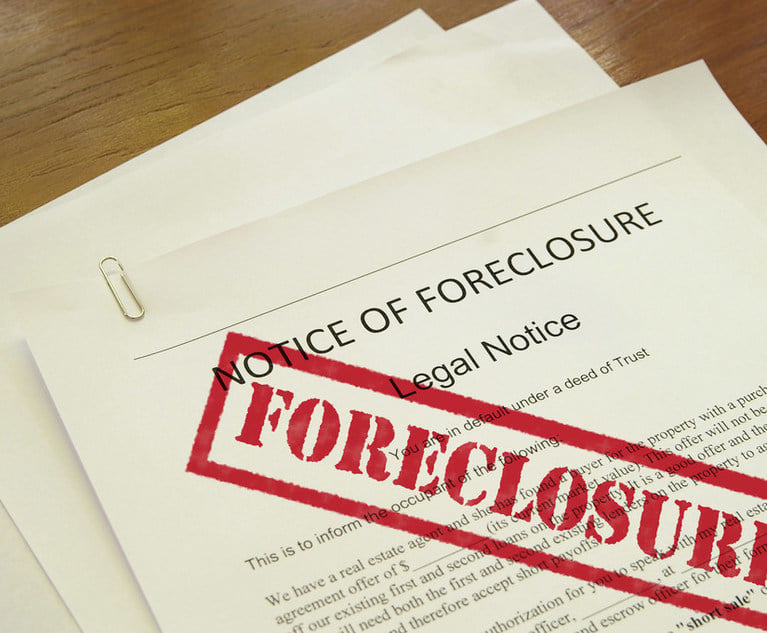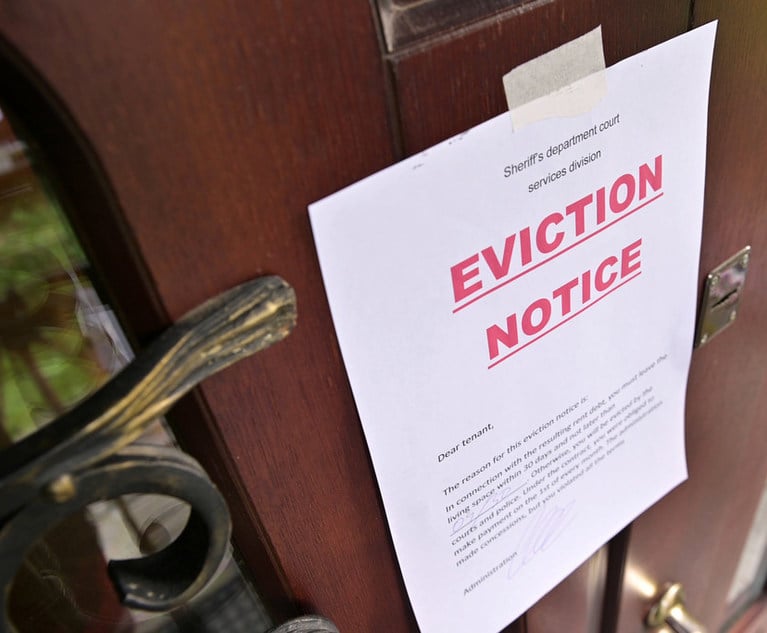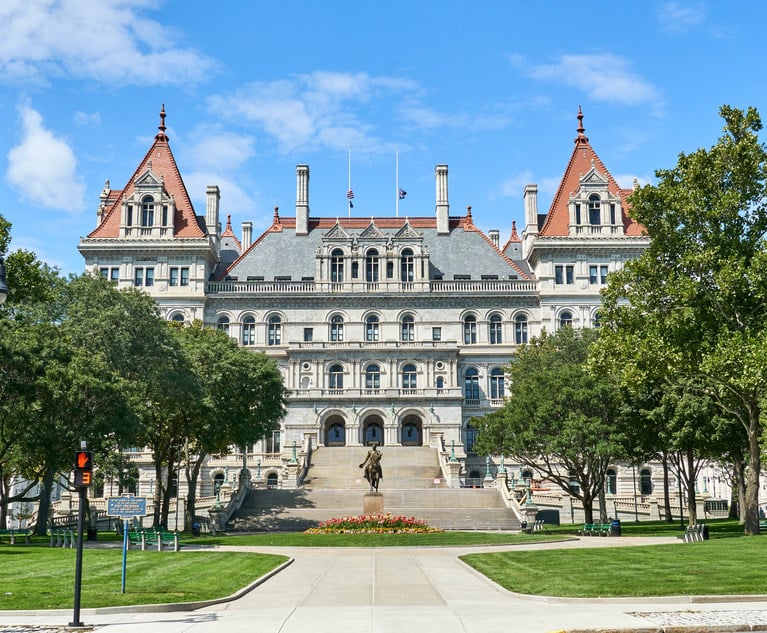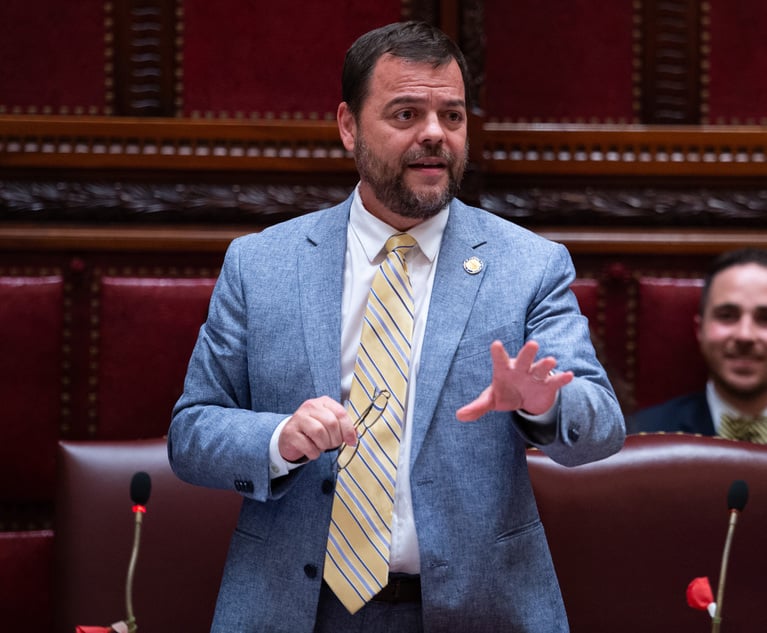On Dec. 30, 2022, Gov. Hochul signed the Foreclosure Abuse Prevention Act (Act). The Act, which amends the Real Property Actions and Proceedings Law (RPAPL), General Obligations Law (GOL) and Civil Practice Law and Rules (CPLR), became effective immediately and applies to all actions commenced under CPLR 213(4) and in which a final Judgment of Foreclosure and Sale has not been enforced. As such, the Act applies to pending actions, not just new actions commenced after the effective date.
Highlights of the Act are summarized below, but please refer to the full text of the Act for additional information and potential further updates after the date of this publication (NY State Assembly Bill A7737B (nysenate.gov)):
• The Act adds a new subdivision 4 to RPAPL §1301, which provides that while an action is pending or after final judgment, no other action shall be commenced, including an action to foreclose, without leave of court. The failure to obtain leave of court shall be a defense in the new action and the commencement of the new action without leave of court discontinues the other action, unless, prior to the entry of final judgment in the other action, a defendant raises the failure to comply with the condition precedent or seeks dismissal of the action under CPLR 3211(a).
In addition, RPAPL §1301(4) makes clear that the subdivision shall not act as a stay or statutory prohibition for purposes of calculating the statute of limitations. Further, if it is determined that an action to foreclose under the mortgage or recover under the note is time-barred, the subdivision expressly states that any other action to foreclose or recover under the same debt is similarly time-barred. The amendment overrules New York case law holding that since a lender has a right to the election of remedies, if the court holds that enforcement of the mortgage based on a borrower’s non-payment is time-barred, res judicata does not absolutely bar the lender from electing a different remedy of pursuing a money judgment under the unpaid note.
• The Act amends subdivisions 4 and 5 of GOL §17-105. GOL §17-105(1) states that an agreement to waive the statute of limitations to foreclose on a mortgage is effective if expressly set forth in writing and signed by the party to be charged. The amended language in subdivisions (4) and (5) provides that an acknowledgment, promise or agreement, express or implied, shall not postpone, cancel, reset, toll, revive or otherwise extend the statute of limitations, unless it is made as provided in this section. Subsection 5 provides that the amendment does not change the requirement or the effect with respect to the accrual of a cause of action, nor the time limited for commencement of an action, based upon either a payment or partial payment or stipulation made in an action or proceeding. Notably, the amendments also do not change the requirements in subdivision 1 of GOL §17-105.[1]
• The Act amends CPLR 203 by adding subdivision (h) which provides that once a cause of action to foreclose a mortgage or for a money judgment under the note accrues, no party may unilaterally waive, postpone, cancel, toll, revive, or reset the statute of limitations, or otherwise unilaterally de-accelerate the debt.
• The Act adds a new 205-a, which significantly limits reliance on the savings statute for time-barred claims. Specifically, under the new CPLR 205-a, the original named plaintiff may commence a new action upon the same transaction or occurrence or series of transactions within six months if the prior action is terminated in any manner other than a voluntary discontinuance, a failure to obtain personal jurisdiction, dismissal for any form of neglect, including, but not limited to, those specified in CPLR 3126(3), CPLR 3215, CPLR 3216 and CPLR 3404, for violation of any court rules or individual part rules, failure to comply with any court scheduling orders, failure to appear for a conference or at a calendar call, failure to timely submit any order or judgment, or a final judgment upon the merits.
The new CPLR 205-a also provides that a successor-in-interest or an assignee of the original plaintiff cannot commence a new action, unless pleading and proving that the assignee is acting on behalf of the original plaintiff. No more than one six-month extension is permitted. Further, if a defendant serves an answer in an action commenced under CPLR 213(4) and such action is terminated in any manner, any cause of action or defense in the new action shall be timely if it was timely asserted in the prior action. Notably, the new CPLR 205-a eliminates the prior requirement that “the judge shall set forth on the record the specific conduct constituting the neglect, which conduct shall demonstrate a general pattern of delay in proceeding with the litigation.”
• CPLR 213(4) is amended to add paragraphs (a) and (b), which estop a plaintiff in an action commenced under CPLR 213(4) (foreclosure action or action to collect on a note) or a defendant in an action commenced under RPAPL 1501(4) (quiet title action) from asserting that a prior action was not a valid acceleration of the debt, unless the prior action was dismissed on an express judicial determination that the instrument was not validly accelerated.
• CPLR 3217 is amended to add new subdivision (e), which provides that the voluntary discontinuance of an action, whether by motion, order, stipulation or by notice, shall not waive, postpone, cancel, toll, extend, revive or reset the statute of limitations, unless prescribed by statute.


 Credit: zimmytws/stock.adobe.com
Credit: zimmytws/stock.adobe.com




